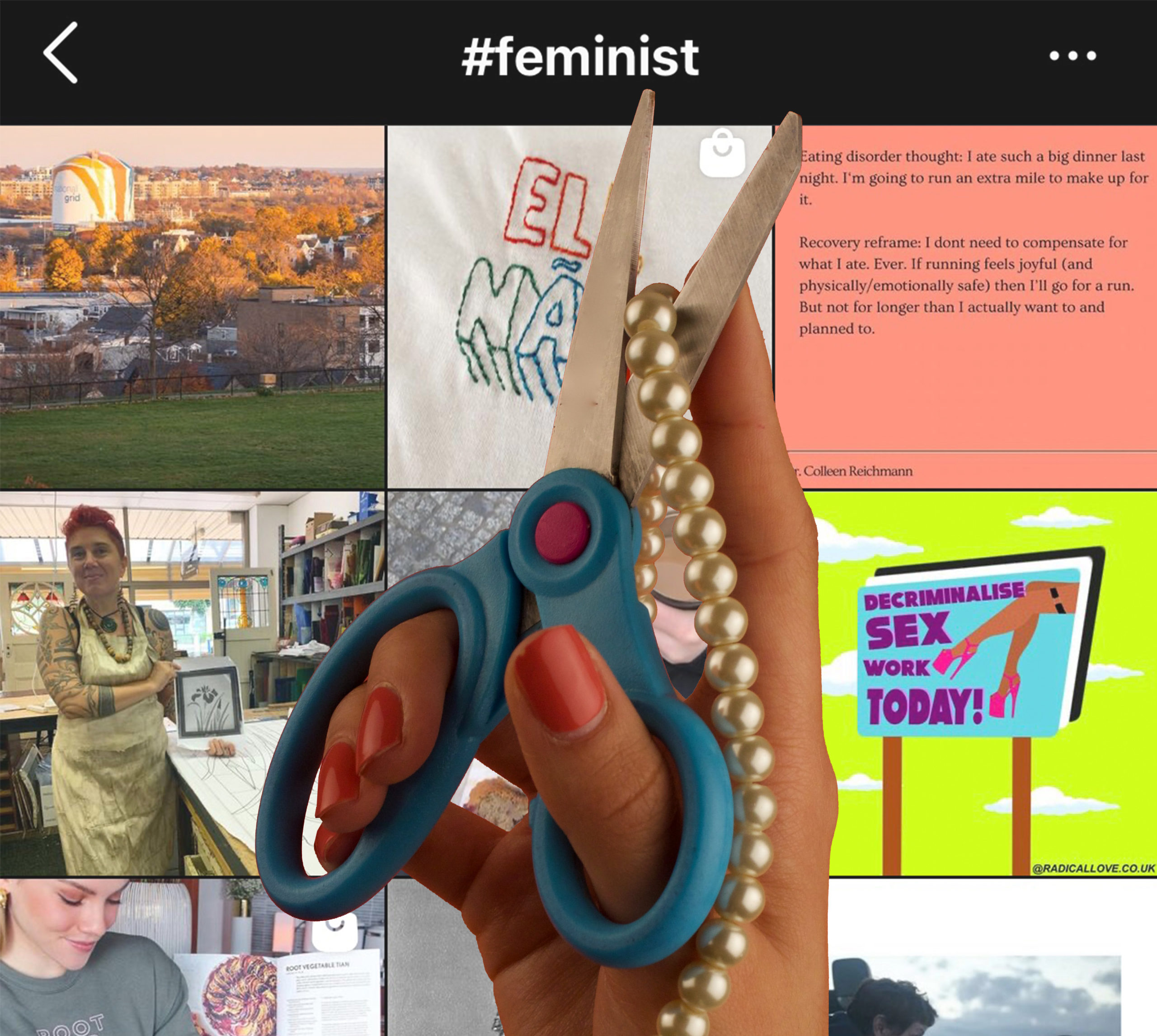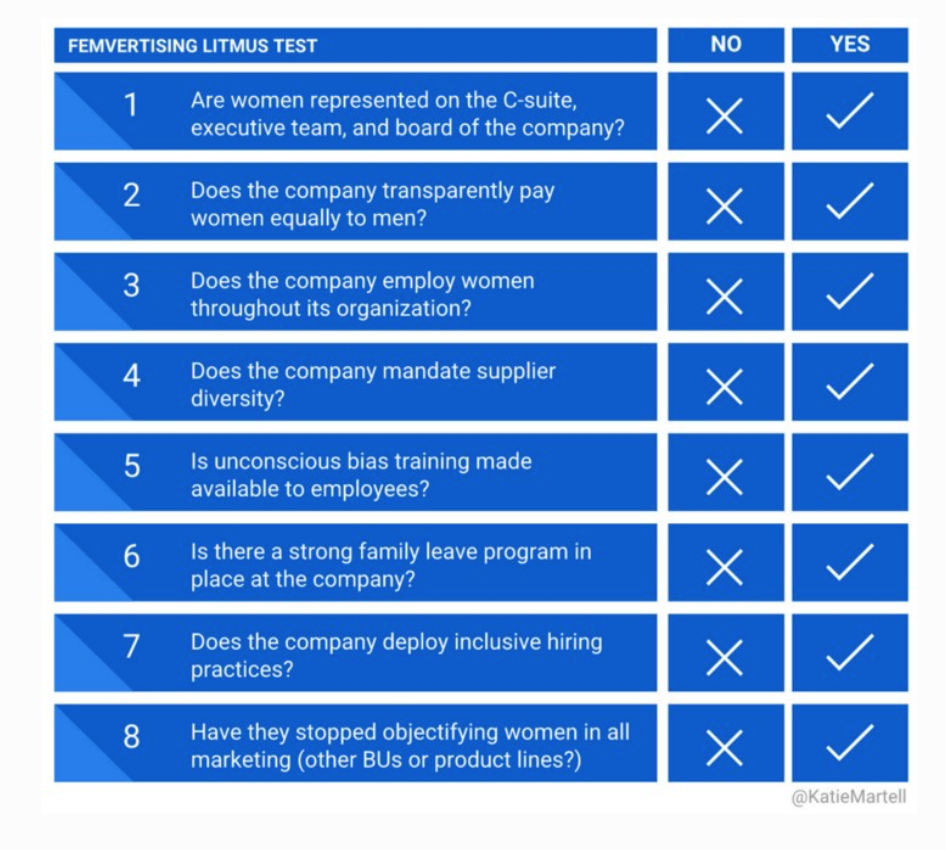
24 Mar Feminism in marketing: how far have we come?
In 2000, a movie called What Women Want was released. Its rom-com plot focused on an arrogant male advertising exec who suddenly, magically, can hear the thoughts of women, and is thus struck by the horror of realizing most females think he’s terrible. He then softens into a stand-up guy who is a shoulder for his daughter to cry on and also rides off into the sunset with his boss (!!) from whom he stole ideas earlier in the film (!!!). It’s … a lot.
It’s also a sign of its times. 20 years ago, at the turn of the century, feminist marketing wasn’t much more complex than “women like sports, TOO.” As for the disapproving thoughts the character played by Mel Gibson (who, as a celebrity and public figure, is also a sign of those times) overhears from his female counterparts … they are disapproving and ridiculing, but seem to stop short of the rage that any woman who has worked in a situation like that knows all too well.
To a person who identifies as female, and who works in marketing in 2021, the whole thing seems rather toothless. And maybe that was the point. Softball the morals, but indulge in the saccharine romance. Ask the hard questions, but make sure the answer is easy enough to be wrapped up in 127 minutes. But those hard questions can’t be evaded any longer by the advertising and marketing industry, and the answers are only getting more complicated.
To understand what it means to market to women in 2021, means to understand what it means to be, or present as, a woman in 2021. Millennial pink and Bikini Kill don’t quite cut it anymore. Because, really, what could a collective millions deep and continents wide feel unanimously connected to and compelled by in a post-Me Too, mid-Covid, pre-equal pay world? The same world that thought it understood intersectionality, only to find out it was very wrong, and that is evolving in shifts to render gender a construct of the past.
But to be a woman also means to constantly reconcile with the way the world sees you versus the way you see yourself. Cultural expectations of womanhood follow us around like Peter Pan and his shadow, occasionally taunting, at times eluding, but never fully detaching from everything we do. Can marketers, a workforce comprised of 67% women, lower this biased lens, even if it is still applied to themselves, and pave the way for a more authentic consumer experience for women?
A website called Faux Feminism argues that even if a company seems to say all of the right things, if they are still applying gendered restrictions that hold their female workforce back behind the scenes, it is hollow. In other words, walk your talk. In similar words, the same point Zenzi made last summer around valuing inclusivity during the Black Lives Matter movement. Faux Feminism, a site created by Katie Martell, a marketing consultant, even offers a Litmus Test to make what should be an easy concept even easier.

A blog post for The Marketing Society draws a line between “marketing feminism” i.e. wearing female-empowerment like a slogan T-shirt, and “feminist marketing” i.e. being the one who fights back against gendered dress codes at work. However, another post from The Conversation alleges that “neoliberalism colonized feminism” and that the term is as much of a sellout as the major figures who have hypocritically touted it.
As we see, feminism, much like being a woman in the world, solicits many opinions. Are any of these takes necessarily wrong? No. But attempting to find a moral black and white, and trying to institute rules are actions that perpetuate the problem more than they contribute to the solution. The one experience that seems, though sadly so, quintessentially female? Being told you’re doing it wrong.
As it was in 2000, it is now — liking sports is for women. That should be cherished, and celebrated, and, if appropriate, marketed. As it was in 2012, as it is now — baby pink is for women. That should be upheld, and should inspire, and should not be up for debate. It’s ok if you’ve never watched sports but still want those Nike sneakers, and it’s ok if you love pink but are tired of the Glossier effect. It’s also ok if that effect works on you! There are so many ways to be a woman, and there are so many attempts to reach out to the diverse, ambitious, and ever changing body of humans that identify as women, and instead of seeing shortcomings, we should see the progress.
In the 1950s, advertising towards women looked like this. There was only one way to be a female. Now, there are thousands. Expecting an industry (marketing) that still exists inside of an imperfect and evolving system (capitalism) to be any more a sign of its times than What Women Want is reductive and unrealistic. While it’s incredibly important work to hold our systems and our leaders and our culture accountable, it is also incredibly important to welcome new definitions, to find space for people who don’t look or think like you, and to look for opportunities to express kindness and respect towards what has been accomplished and what is inspiring progress.

